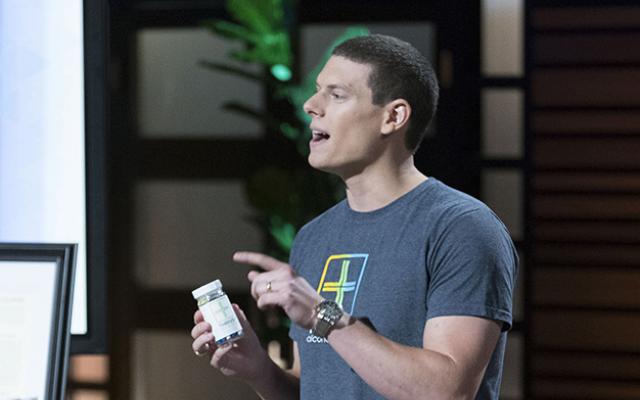
When Brooks Powell's Houston-based startup got passed over by the investors on Shark Tank last year, he didn't let it deter him. Instead, the Houston entrepreneur buckled down and started seeking investments off the screen.
It paid off, and Cheers (née Thrive+) recently closed a $2.1 million seed round. The round was led by NextView Ventures, which has the likes of TaskRabbit, threadUP, and Letgo among its portfolio.
With the new investment, Brooks says the company is rebranding from Thrive, its original moniker, to Cheers.
"Thrive+ doesn't really say anything about what we did or who we are about," Powell says. "We knew we needed something fitting for the alcohol industry but at the same time has the connotation of fun, responsibility, and health."
From student to CEO
Cheers' formula isn't new. The key ingredient, Dihydromyricetin, a natural extract — like caffeine to coffee, which made the FDA process smooth sailing. DHM started being identified as an anti-alcohol treatment in 2012 following experiments on the effects on rats.
Around that time, Powell was a sophomore at Princeton University, and he came across the science surrounding DHM and knew if he could harness the natural extract for commercial use, it'd change the game of hangover health.
"I started working with some of my professors and asking them if it was safe and would it be effective," Powell says.
At the time, there was very little amount of DHM in the United States, so the company became the first to import the ingredient on a large scale.
Powell graduated from Princeton in 2017 and moved his company to its workspace in The Cannon.
Serving up growth
Cheers has seen a tremendous amount of growth over the past year. The company's revenue increased 20 times year over year. A key determiner of success for the company, Powell says, has been strategic marketing and a working product.
"Primarily products such as this, historically, have never worked," he says. "And they've always been marketing toward binge drinkers and partiers."
Another strategy Powell has is giving the company a presence nationwide by having advisers and investors from both coasts.
"What we have tried to do is have our cake and eat it too. We set roots in Houston, but we have our hands in other markets."
In addition to rebranding, Cheers plans to continue its growth, as well as research and development of the product.
The process has been daunting, but worth it, Powell says, citing companies like Ring, which changed its company name from Doorbot.
"It would be hard to imagine Amazon buying a company named Doorbot," Powell says.
It's worth noting that Doorbot rebranded also following a similar rejection on Shark Tank.
Once Cheers had its new name, Powell began the process of the transition — relabeling bottles, redoing marketing materials, etc. There's still a long road ahead for the rebranding, but Powell says he wasn't going to drag his feet, since the change would just become more expensive and more challenging. Ring, for instance, had to pay $1 million for its new domain name.
"We wanted to become Cheers as soon as possible, because it would only become harder as time went on," he says.
Read the original story on innovationmap.com.